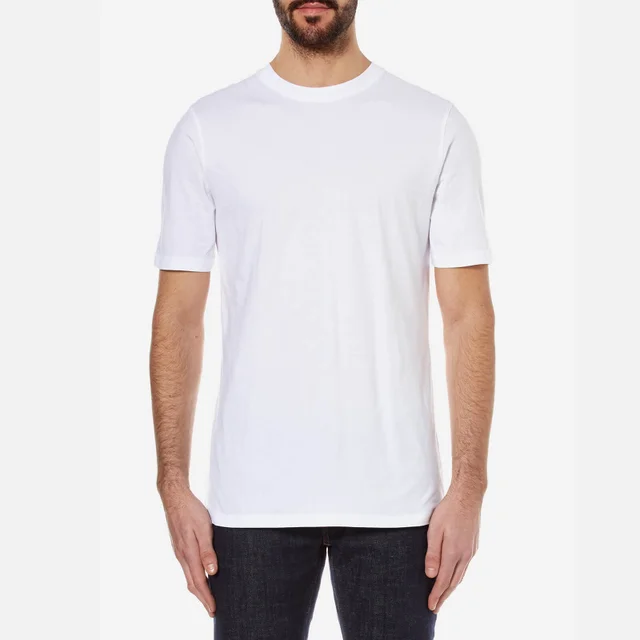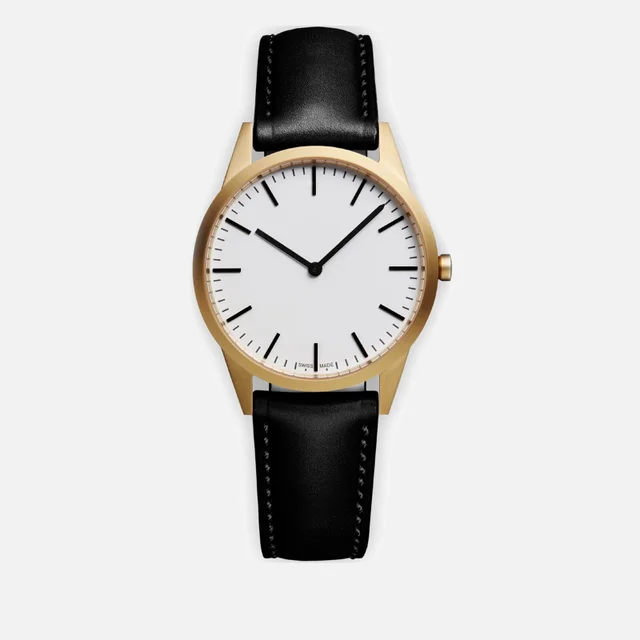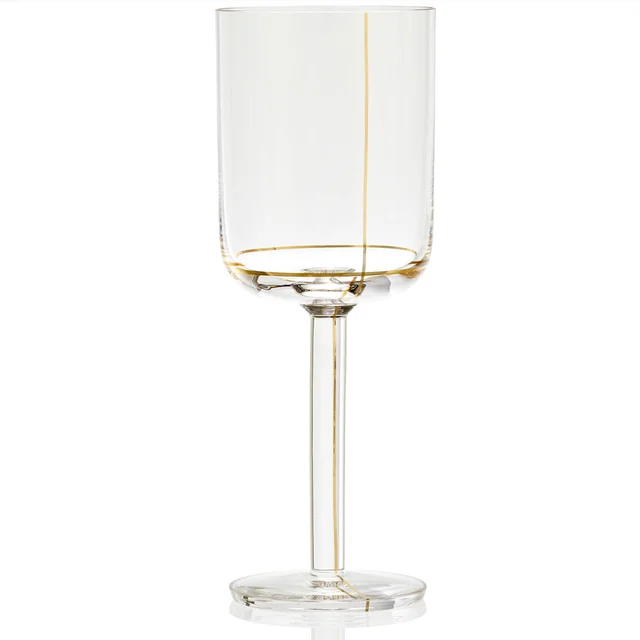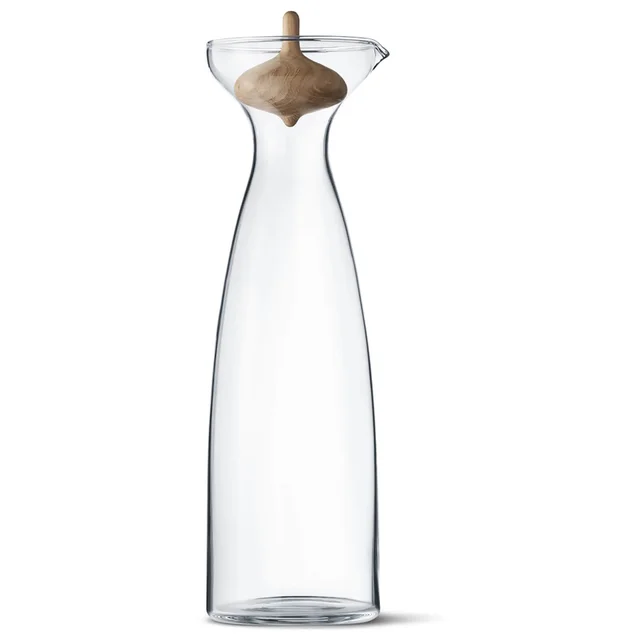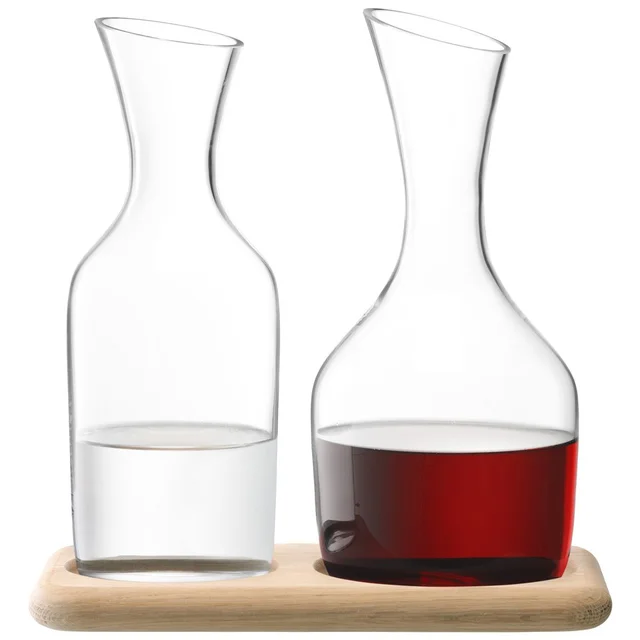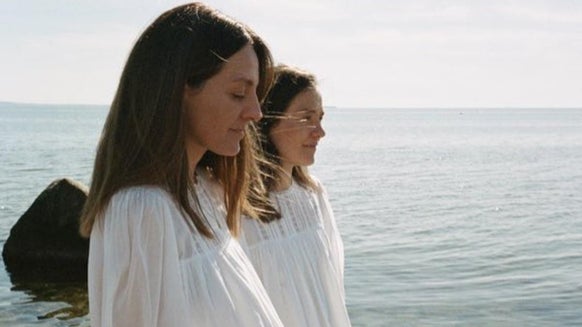Interview: Inside Sager + Wilde with Michael Sager

In the summer of 2013, East London received something it (shockingly) didn’t already have: a good wine bar. A great wine bar in fact, where the wine list was extensive and thought-out (much more so than your average). It was well designed, with pendant lighting, exposed brick and dark wood, and unlike wine bars of the past, it was relaxed, inviting and accessible. That wine bar was Sager + Wilde, the Hackney Road establishment that has won numerous awards and hasn’t seen its popularity wane in its four years.
A year later and co-founder Michael Sager opened Mission, a restaurant beneath Bethnal Green’s railway arches, with now ex-wife Charlotte Wilde. Just like their first venture it was a complete success…until a few unforeseen hiccups meant that it wasn’t. Three years later and Michael is now the sole owner, Mission has become the second site of Sager + Wilde - offering an exciting menu alongside an equally as exciting wine and cocktail list (of course) – and the Paradise Row spot is garnering the same reputation as the Hackney Road original.
We went east to Bethnal Green to talk to Michael about wine, food, travel and what Brexit means for the Swiss-born Londoner.
Busy, busy summer. This week is the worst week of the year though because it’s the August bank holiday.
Exactly a year. We got the keys for it nine months later and then opened in August 2014.
Necessity. At the time, I was with my former business partner, my ex-wife. She’s not in the business anymore, I’m the sole owner. To survive and to make a living for two people, you need more than one business for various reasons; one can fold, go out of business; it’s bound by the lease, it’s bound by what the council wants to charge, business rates. The lease down there [Hackney Road] finishes in 11 years, so you have to think outside of that.
Everyone wants to open a neighbourhood bar but you can’t just live off that. You can in Naples or elsewhere in Italy because you’d probably buy the whole thing but here you can’t. I’ve seen it [going out of business] happen to too many friends of mine.
Also at that time there were profits coming in because we were just working all the time, really hard in the business, so we used those profits to open this place. We opened and it was busy right away. It’s unusual for people to open another place after a year unless you have backing, which we did from family.
They were new. When we opened this it was actually called Mission and it was a concept that was Californian wine with a take on Italian food. The food is very similar to what we do now. When we did [Mission] we got five star reviews from TimeOut, we were doing brunch, lots of exciting things. It’s not less exciting now but there wasn’t this building site right in front of us. You could see right up to the green and that makes a huge difference because you can see us from the main street. Funnily enough we’re busier now than we were when we started.
We got off on a good foot because of our story, we were a husband and wife opening a Californian- angled wine bar. The California angle back then was trendy because not many people had done it. That’s why I think the first year it was packed.
Then we got a lawsuit. My ex was trying to file for a trademark for Mission and we got a cease and desist through from a company in Mexico who had already registered the trademark in the UK, even though they didn’t do anything with it.
Yeah. We were in the middle of breaking up with each other and ignored it, then it became serious so we had to hire a lawyer. We lost the name and had to rebrand. When we rebranded we were like ‘fuck, it’s going to look like a failure if we call it something new’, which it wasn’t because it was busy. Instead of calling it something new new we just made it Sager + Wilde, like the wine bar.
This area is independent. There aren’t two McDonald’s. There’s no fucking Pret A Manger. We’re a very Hackney business - even though I’m a foreigner I’ve lived in Hackney for 10 years. As a very Hackney business to have a chain, that’s weird. That’s been a challenge. If I were to give advice to anyone about expanding it would be to use a new name every time. Unless you want to do a chain and sell that, but that’s not my interest. I just want to still be in business in 15 years’ time.
Yeah. I think out of my mates I’m the only person who’s 100% the sole owner. By doing that you have to think, ‘is this what I want to do?’ Me and the operations manager here, we’re going to open up a new cocktail bar that’s a whole new concept.
No. It’s [ownership] half-half but he’ll act as the owner. We’re doing it by growing money from this [Sager + Wilde] as a business which I think is the right way to grow. That’s the thing, why make millions? At the moment my wife is happy and I’m happy working.
No. And ego-wise…I’m in a field where I’m considered halfway knowledgeable with what’s going on. The moment you branch out into a chain, that’s gone.
There are other ways of expanding as well. We could do a book, we could a Netflix show, both of these things are opportunities. You can make money on a book.
There are many things that we’d do with this, or after this. I love California, I lived over there for two years. My former boss over there, he’s talking about opening up a chain that would be run by other people but I could be a director of that. There are plenty of other interesting things too, starting with an import business. Our friends who have another restaurant business, we’ve teamed up with – not a vineyard – but a vigneron, to make wine together. We can then retail that in shops, but that can be scaled.
San Francisco. So much money. That’s strange right because it’s an in and out thing – you give me more money then I will eat, drink more. No good comes to having loads of money.
Same. I was a bar manager, but not an owner. It was great. I’ve already got my B-1 [visa], so I can go for six months a year now, I don’t have to apply for an ESTA anymore. I love California. Also we don’t know what’s going on; I’m not from here, we don’t know what’s going to happen with Brexit. I’m not from an EU country, so I’m hoping whatever the contract is between the UK and Switzerland isn’t going to change. But I’m only allowed to be here because it’s [UK] part of the EU. So fuck knows how that’s going to look.
I employ 35 people and pay a fair amount of tax, always on time. I don’t think they can do that. I think it’s more about stopping people from coming in. Coming for a holiday because it’s cool and then staying. That’s how I ended up here. It’s a cool city, it’s a cool country to move to. We have a few people who work here from Italy, a couple of French guys, Spain.
There are a lot of labour costs. You can only make a million turnover on a site like this in a year. £100,000 profit which is great but if you have to share it like most people do, it’s not great. Eighty per cent of restaurants go out of business within the first five years because they’re not feasible. But they say that’s a general small business issue. You think after 10 years in business it would get better but it doesn’t. It’s the most unfeasible thing to spend your money on. But that includes people who have never done it before.
Yeah. And like any other job you get fed up with it, even if it’s yours. That’s the really interesting thing.
I don’t notice it but my wife says it. It’s different for her because she’s a teacher - primary school - so you’re not going to take that stress home with you. Even then you have the syllabus and you teach that syllabus, it’s not really that dynamic. Here randomly, just before you got here, you get a bill for water for nine grand but we’d already paid, they hadn’t read the meter properly. That’s the kind of thing I’d love to get rid of but I have to do it myself for the time being. You want to grow to a point where you have a financial director who deals with it. I’m not even trained in it. Marcus, our operations manager, he helps. But it is a hassle.
You realise you have to get organised. Our wakeup call was when we had no customers after the name change. We were operating at a crazy loss for 18 months and then the last five months have been really good. But it took changes.
We changed up the food. We had a fancy four-course menu that was £45 but the place that we’re in [Bethnal Green], it’s hard, no one wants to pay that. Even myself, I don’t want to go out and pay £45 for a meal.
And then drinks on top of it.
That’s right. The average cheque was about £80 a head. We were full Friday, Saturday. Sometimes Sunday, sometimes Thursday but then we started closing Mondays, started closing Tuesdays. Lunches weren’t busy. Now we’re really busy but the food is way cheaper. The chef came up with the amazing idea of doing pasta with a glass of wine for £10 – oldest trick in the book, right? Now we’re full between 5-7pm and we still make a profit because pasta’s so cheap to make.
At 7 o’clock people walk past and think ‘oh this looks nice and busy’ and now we’re the busiest on the road. It’s mad, we’re behind a building site. I can’t even think about what it will be like once we’re actually exposed to the street. It will be a very nice business to have. It was hard to get rid of a few elements that I believed in because we used to be so busy, I thought nothing could touch it – but that was before the name change.
Originally, we said let’s get an amazing chef with a high profile. We hired a chef who was at Chiltern Firehouse, there was a big opening, he was very skilled. But it just wasn’t right.
No. The food was very experimental. New Nordic – Copenhagen, Stockholm – meets ancient Japanese sort of fermentation stuff and you would read a menu and not understand it. I didn’t understand it, and that’s as a restaurant person. Every other ingredient I was like ‘fuck, what’s this?’ If you only have 20 covers to fill, yeah, but this place can only be profitable doing 60/70 a night.
You’ve got to be more pedestrian. It’s also nice because the main thing was always the drinks. We had poncey wines already and poncey drinks [we didn’t need poncey food] – the cocktails we’re doing are crazy challenging. If you have something that works, why change it? That’s the other lesson I’ve learned. But we changed, got cocky and then we just couldn’t handle the name change because we had no repeat business any more. If you say to someone £100 a head, that’s for anniversaries, that’s for birthdays, they get picky as well. They have value perceptions, so we used to get complaints. Google didn’t show us properly because we renamed this place into the same as the other. It wouldn’t show on Google whatsoever. Or Uber, which it still doesn’t. I recommend anyone who opens a second place not to name it the same as the first.
Yeah and my life is great, I travel a lot. That’s the aim, at least to have freedom. I don’t have a house or car or anything but travelling is nice.
Yeah but indirectly. I don’t have an import business. In other countries, it’s actually illegal to import the wine and sell it directly to the consumer, like the US. Here we’re allowed to do that but our selection is always changing. When you import you’re stuck with a producer meaning if the guy starts making shit wine or he dies, the son takes over or the daughter takes over. There are always about six or seven years when they’re trying to put their own mark on it and it doesn’t always work. That in between time is difficult. That’s why I’m glad I’m not importing.
I’m going to be part of an import business this year. I’m travelling with a lot of people who are not from the UK; America or Spain, wherever, people I’ve met travelling and I tag along to go and see up and coming producers with them. I’ve given so many hot tips away, that’s why I need an import business because you end up paying someone else 30 per cent or whatever.
That’s right, so I’m very keen to be involved in that. This idyllic perception of someone going to the vineyard directly, it just doesn’t exist. The only people who really do that are the big supermarkets.
Our wine list is never bigger than 600 references but we rotate every day, we only buy two bottles, four bottles, six bottles of a certain wine.
There’s just constantly really exciting stuff. It’s weird because you can’t even put it on Instagram or anything, we definitely over deliver. We do a lot of wine events when the winemaker comes here. It definitely helps, when we have a winemaker who’s world famous it’s packed.
But it’s hard to change. People will only drink what they’ll drink, or whatever the press tells them to.
You can make beer yourself with not much money, the margins are huge. All you’re doing is fermenting barley with hops. It’s the packaging, it’s amazing. It’s fashionable, it’s how you sell it more than what it actually is. That works with coffee too because who the fuck actually knows the difference. I have a mate who does and he’s founded an important brand called Assembly. They’ve done really well and become third now in the UK as a speciality coffee after Square Mile and Workshop Coffee. Funnily enough they’re both around here. But you can’t do that with wine.
Wine is not cool, it sounds stupid. It’s a gender issue as well. Craft beer is easily aimed at young lads or whatever, or whoever – the London Fields hipster, myself. I fell for craft beer. In 2010, 2011 – there was nothing. Camden Brewery was only just founded, the only London breweries were Meantime, Young’s. There were maybe one or two more, now there are 35. That’s in seven years, it’s mad. I remember telling everyone in San Francisco that we didn’t have craft beers in the UK and now it’s picked up. But again someone looked at what worked in California and said ‘fuck let’s emulate this here and make some money from it.’ Is it as good as the real thing? Half of it isn’t.
Exactly. The more grassroots element is still in the States, hats off to them. In the States they have actually done it because they believe it, it’s the same with wine. Here it’s a tough one. I’m not saying it’s a lost battle but the majority of people don’t drink really good wine because it’s unaffordable.
For me it’s price, I always say maximum 40 quid. I was out for dinner on Saturday with a mate, last night with family and again on Friday. I don’t want to spend more than 40 quid. The majority of my list is more than 40 quid. It needs to be, it’s aspirational to me. And the people who can afford it, they should have it. You definitely get what you pay for. It’s like in fashion, the best trainer you can buy should be like £250, it shouldn’t be £900.
I think so. It’s the same with wine. After £200 a bottle [at retail], wine is not worth it. I have it [more expensive wine] when I’m travelling but it doesn’t cost as much if you’re at the winery and the winemaker likes you. There’s nothing like drinking wine with the person who made it. It’s like a time warp, they remember what it was like when they made it, it’s really nice. It’s the main reason I travel.
Like I said, at the producers’. You can’t beat that but then that’s not sustainable, you can’t tell people that’s what they should do because they can’t get in there.
We came out of nowhere. I wasn’t a wine person, I was a cocktail guy until about 2011. Then I moved back here and had an idea; I didn’t want to charge more than what it cost me to open it. I guess that’s what was the unique angle. The maximum we make is £40 on a bottle of wine but on some bottles we don’t make anything.
The people element. I was in cocktails and they have huge brands which are great, you go on nice trips but you don’t meet any of the people. You meet the brand people, not the people who actually make it – because they don’t exist. Even the craft whiskies are all owned by bigger companies. I didn’t believe in it. With cocktails, it’s more about being at the bar, the wizardry.
Yeah. I didn’t really enjoy it. I like to travel and with wine that’s totally doable.
Burgundy still. It’s a hassle to get to, I like that. I’ve not been to Italy in eight years - since I started in wine - and Italy for me makes the best wine for money. Maybe that [opinion] will change when I travel there and I might see that they’re doing things that aren’t really ok but for now I think that’s a cool country. California I love. In California people make wine because they want to, not because their father said that’s what they should do.
I like that. Over there you can build a good relationship with people. They were maybe a banker before and they thought, ‘fuck this I’m going to make wine.’ That’s cool. For some people they’re farmers and it stops there. But the ones who are successful think beyond that, they’re selling to restaurants in New York, Paris, Tokyo. They’re the interesting ones.
Yeah it’s great, I spent almost all of June in France.
It really is. It’s a great job but it’s not healthy because of the drink, you can’t turn it down. In California I was really overweight, about 16 stone, 17 stone, 18 almost. It was hard to lose it. I lost it by travelling and working in south America for eight months, nine months. I worked at a coffee plantation, cacao plantation, wine harvest.
All over. Argentina for a month, Chile for two, Bolivia for a month then skipped through Ecuador for a bit of surfing which I’m not good at, then up to Columbia. Next level goal would be to really healthy but it’s hard to fit in exercise when you work late. You’ve got to motivate yourself. Long term goals, this [Sager + Wilde] needs to create a canvas where I’m 100% happy, healthy. Longevity, all of that. Kids. Going from a small business to a big business, that’s a big step. I could always sell it but it’s a bit short sighted because you just get a lump sum.
I’d miss the people element. Not the things, like dealing with gas companies, our landlord. I’m the only person in this business. That’s the hassle. More money would definitely help because I could hire someone to do it. I borrowed the money from my family. Instead of putting that money into a house I chose to put it into this because I wanted to be free. I don’t feel free yet.
I can never be off this [phone]. I turned off all my notifications, got rid of my Facebook because it got hacked. But when you’re self-employed you think ‘shit am I missing an opportunity?’ Twitter’s the same, I just kept Instagram. But even that, I was reading an article on Highsnobiety about a company who created fake accounts, grew them really big and got endorsements, just by using stock images. It’s like in this business as well, in restaurants that also exists.
Yeah. How in London anyway, it’s not really grassroots. It’s big fucking investors. There are only a couple of people I’ve seen who have done it through crowdfunding and they’ve crushed it. But most people wouldn’t want to put 150 grand of their own money or their family’s money into this.
That’s right. They say ‘ok let me get money from someone who already knows how to operate’ and then competing with them is tough. It’s not really a market of small business but big businesses invested in small businesses.
Yeah, London is a prime hub. Especially Marylebone or Mayfair. Money gets pumped into fancy-looking restaurants that are Instagrammable. The second thing I didn’t expect is how shit the press is.
Yeah but when we had the change of name we couldn’t convince anyone to spend any money on PR, or convince someone to come in and review. It’s also very predictable. Places will get a good review depending on who has invested in it. It’s like that episode in House of Cards when they’re in the forest, I feel like I’m Frank Underwood walking into the forest and I’m like shit, whatever I’ve been doing is not really…I’m not really there yet. There are people moving parts you know, and everything’s linked.
Paris’s best reviewed restaurant is owned by one of the co-owners of Vogue. Vogue is the only relevant publication that’s not food. You get a review off them and they keep on writing about you, that’s it, you’re sorted. It’s very interesting – you just don’t see that. The big surprise is that there is a recipe for success. There’s that book by Malcolm Gladwell, The Tipping Point. It’s about how you can analyse success; there are many elements to it. It’s been teaching me a lot, out of necessity.
No, it’s awesome. It’s ruined my first marriage, which is a good thing. I feel more sort of…I’ve learnt things I wouldn’t have learnt otherwise. I could still be living in Switzerland.
Yeah. Simple. I could be teaching, teachers earn a lot in Switzerland. But when you travel you get your own perspective of the world. One side of me is longing for more but the other side of me is like ‘fuck, I’m happy that I’m free.’ It’s tough to say whether I’d do anything differently. Anything that removes the stress would be good but it’s self-inflicted.
No. I have the bright side of being away a lot. And it’s all out of my own choice. I’m trying to build a global brand so that when people come to London they come here.
I leave it up to the chef. I just make sure it doesn’t go too airy, too ethereal. That’s the other important part about travelling. You go to other restaurants and you realise what works, otherwise you get stuck in your own bubble. Even to the way we lay cutlery. You wouldn’t learn what was important in a restaurant unless you travel.
With the food, we made a conscious decision to be like when we first opened – Italian with modern British. Then the pasta element developed when we realised that people really love it so we might as well get a pasta machine. It’s still handmade but it just gets made faster. It’s constant. Chris [the head chef] recently said, “you know what the menu is really on point.” That took him six months, it doesn’t work from day one. This is his first head chef job. He was at Kitty Fisher’s in central London which won loads of awards, but he was the soux chef. It’s taken him a while to learn.
Everyone here…it’s a money issue. We haven’t been able to get a head chef who’s been a head chef before, a GM who’s been a GM before. Everyone here is in their position for the first time. I’m an owner for the first time, slash financial director, slash marketing. We’re all first timers.
Yeah. You don’t have too many people telling you what to do. It’s the same with the food, we’re producing the best meals at that price point. The most we charge is £15 for a main course. You and I don’t want to pay more than that. For me if a meal costs more than 50 I’m like no. That’s why it’s interesting to travel, I went to Glasgow and a good pint was £2.50.
London doesn’t really have a food culture so it’s important to learn from other regions. Slowly it’s happening.
Sager + Wilde can be found at Arch 250 Paradise Row, London, E2 9LE and the wine bar at 193 Hackney Road, London, E2 8JL. For more information and menus, visit the


